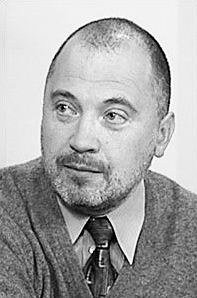 Nikolai Petrov
Nikolai PetrovThe question is not whether the Kremlin will start a crackdown on the opposition, now that Russia is out of the international spotlight following the Sochi Olympics. It ended this weekend with Russian athletes taking first place in the overall medals standing and no major incidents such as terrorist attacks, scandals involving the LGBT community or police abuse occured. The issue is what will happen to Sochi now that the most ambitious project in modern Russian history has finished.
Sochi and the surrounding North Caucasus region could well suffer "post-Olympics syndrome," a condition brought on by the sudden curtailment of federal funding and a major shift in the financial policy of the region. Major staff changes at the regional and federal levels could exacerbate the situation.
For years prior to the Olympics, the region had grown accustomed to receiving extraordinary levels of funding and personal attention from Moscow. It now risks losing both overnight.
Regional officials and contractors have already siphoned off or otherwise spent a good part of the $51 billion invested in the Games. While it lasted, that "rain of gold" enabled countless restaurants, hotels, private security firms and other businesses to prosper. Now the whole system must make the transition to routine operations.
The regional workforce faces a dual challenge: a shortage of qualified service employees, now that the Olympics volunteers and Moscow restaurant waiters have left, and unemployment in construction and other sectors connected with the Games.
All of these consequences have the potential to dangerously upset the unstable and fragile equilibrium of the North Caucasus.
The region has lost valuable time for modernizing, and much of the money spent there will have little or no beneficial long-term effect. In fact, nobody knows if the North Caucasus has already crossed the point of no return, after which all attempts at modernization would prove futile.
But one thing is certain: with the world's attention now focused elsewhere, Moscow will not hesitate to use heavy-handed tactics to resolve problems with the region's clans and ruling elite.
On the positive side, the conclusion of the Games frees up the Kremlin to carry out a long-term strategy essential for bringing about real improvements in the region. Moscow began taking a far more forceful approach in Dagestan and Kabardino-Balkaria before the Olympics, and more shuffles among regional and federal officials are inevitable. The presidential envoy to the North Caucasus, Deputy Prime Minister Alexander Khloponin, might even be replaced. In addition, federal officials will have less reason to put up with Chechen leader Ramzan Kadyrov's various escapades.
The end of the Games also forces the question of what to do with the many facilities and infrastructure created for the event. Many were financed by private businesspeople whose outlays were guaranteed by the state. Squabbles over this spending broke out before the Games, and have now intensified.
Once the brief euphoria over the successful completion of the Olympics passes, the authorities will inevitably identify and punish those responsible for various glitches at the Games and the unfinished construction projects — just as they did on a much smaller scale after the APEC summit in Vladivostok in 2012. Unfortunately, it will prove more difficult to return to normal life after the Olympics than it was to prepare and host them. Moreover, Russia is already planning two more mega-projects — the 2018 FIFA World Cup and the Universiade in Krasnoyarsk in 2019. It looks like more fun and games lie ahead.
Nikolai Petrov is a professor of political science at the Higher School of Economics.
A Message from The Moscow Times:
Dear readers,
We are facing unprecedented challenges. Russia's Prosecutor General's Office has designated The Moscow Times as an "undesirable" organization, criminalizing our work and putting our staff at risk of prosecution. This follows our earlier unjust labeling as a "foreign agent."
These actions are direct attempts to silence independent journalism in Russia. The authorities claim our work "discredits the decisions of the Russian leadership." We see things differently: we strive to provide accurate, unbiased reporting on Russia.
We, the journalists of The Moscow Times, refuse to be silenced. But to continue our work, we need your help.
Your support, no matter how small, makes a world of difference. If you can, please support us monthly starting from just $2. It's quick to set up, and every contribution makes a significant impact.
By supporting The Moscow Times, you're defending open, independent journalism in the face of repression. Thank you for standing with us.
Remind me later.






